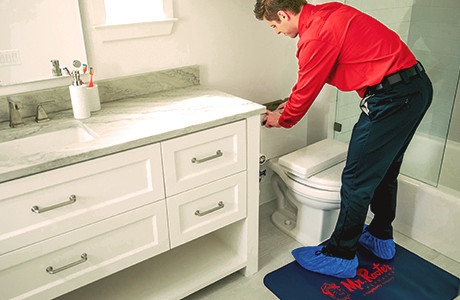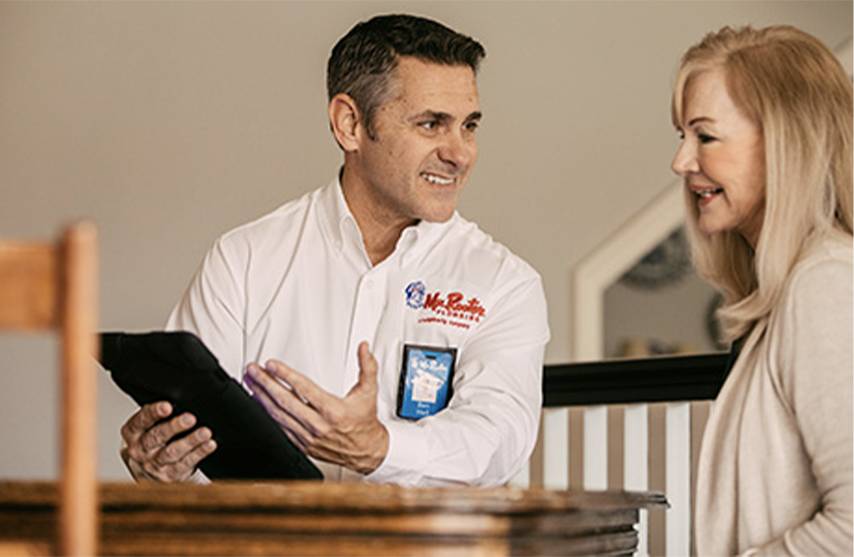
If there’s one plumbing problem no one wishes to experience, it is an overflowing toilet. But it happens anyway. An overflowing toilet can cause an embarrassing mess if you don’t stop it quickly. Fortunately, there are simple things you can do to stop a toilet from overflowing.
Here at Mr. Rooter Plumbing, we’ve fixed a wide range of toilet issues, including clogs, leaks, running toilets, flushing issues, and many more. We’ve seen it all and fixed it all when it comes to toilet problems. If you’re looking for a trusted plumbing service specializing in toilet repair and toilet replacement, call Mr. Rooter Plumbing. In this guide, our skilled and experienced plumbers detail DIY steps for stopping an overflowing toilet.
When you have an overflowing toilet, the first thing to do is to turn off the water supply. Look for a knob or handle near the base of the toilet, on the wall behind it, or under the floor. Turn it clockwise to shut off the water supply.
If you can't find the shut-off valve or it's stuck, lift the lid of the toilet tank and locate the flapper. This is the large rubber seal at the bottom of the tank. Push down firmly on the flapper to close it and stop the water from entering the bowl.
Once you’ve cut the water supply, use a flange plunger, which has a wider base specifically designed for toilets. Make sure the plunger covers the toilet bowl opening completely and plunge firmly with forceful pushes and pulls. This can dislodge the clog and restore normal flow.
If plunging doesn't work, consider using a toilet auger, which is a long, flexible metal cable that can reach deeper into the drain to break up the clog. Feed the auger slowly down the toilet bowl opening, turning the handle at the end to rotate the cable and break up the blockage.

Caution: Be careful not to push the cable too forcefully, as it could damage the pipes.
If you've tried these steps and the toilet remains clogged, it's best to call a professional plumbing service for help. They have the expertise and tools to diagnose the problem and fix it. Professional plumbers can address the root cause of the problem and prevent future clogging.
Mr. Rooter Plumbing offers professional toilet repair and toilet replacement services that you can count on when you need them. If your toilet is overflowing and you need professional help, call the experienced plumbers at Mr. Rooter Plumbing.